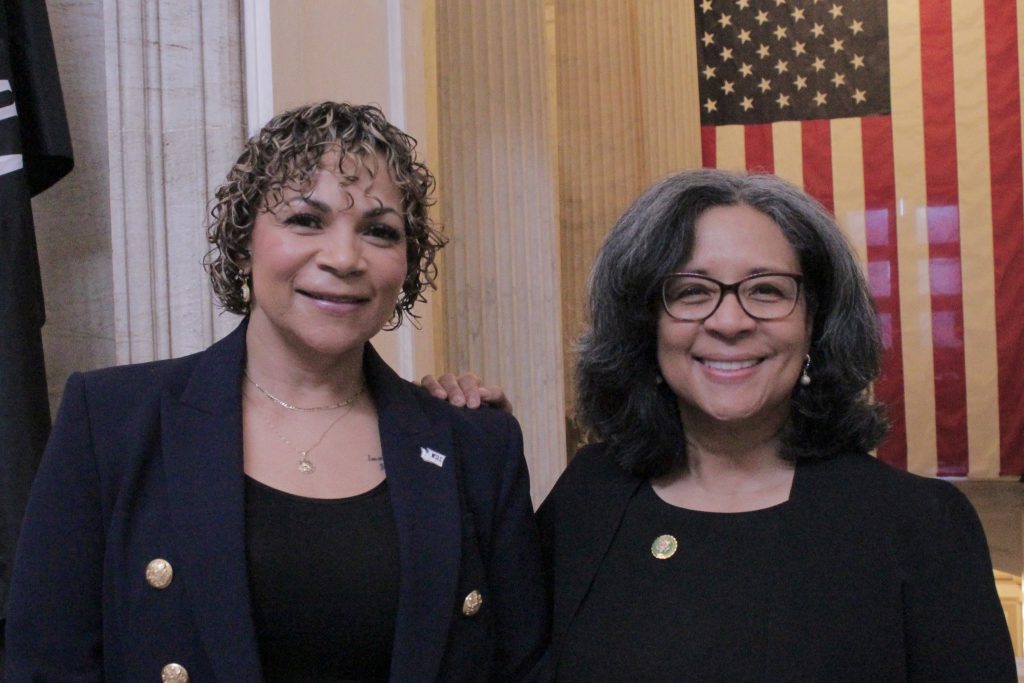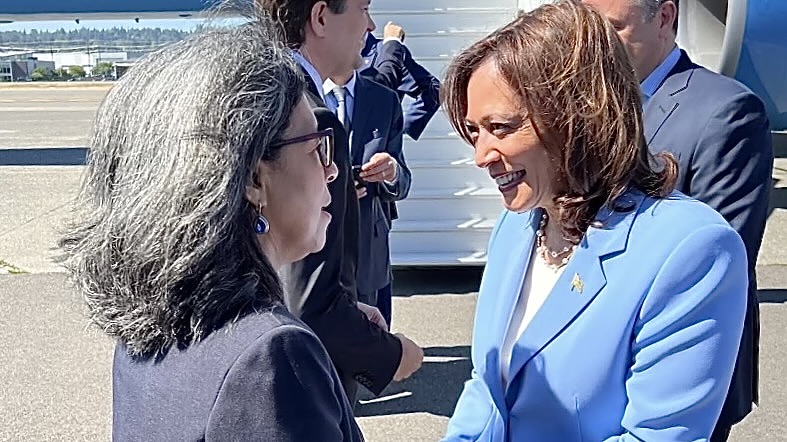Urban One: Engaging Black America | Must Uplift Black Women Leaders
Throughout my leadership journey, I have been a “first” in many situations – the first Black woman elected Mayor of Tacoma, the first Black woman to serve as President of the Seattle Metropolitan Chamber of Commerce, the first Black woman elected to Congress from the Pacific Northwest, and one of the first Korean American women elected to serve in the U.S. House of Representatives. But being the first should not mean being the last. It means paving the way for whoever comes next, cultivating and supporting talent, and ensuring the door is open for whoever follows your lead.

Earlier this year, April Sims, President of the Washington State Labor Council AFL-CIO joined me as my official guest to President Biden’s 3rd State of the Union address. April is the first African American woman to serve as president of a state AFL-CIO labor council. She is a history-making leader who understands the power of promoting and believing in Black women.
Black women in government represent and do work on behalf of all women and communities across the country. They advocate for themselves, their peers, and future agents of change. Basic reproductive rights are on the line right now – Black and minority women are among the most affected by restricting access. It’s inequitable, and it’s wrong.
The fall of Roe v. Wade left us with a patchwork of protections across the country. Black women are leading and advocating for their own communities and basic rights – even as those same rights continue to be attacked and stripped away. 21 states currently have restrictive laws for safe and legal abortion. I was proud to lead the Ensuring Women’s Right to Reproductive Freedom Act, to protect a woman’s right to travel across state lines for reproductive care.
The legislation I lead is often written for Black women, our communities, and our families. We know that disparities for the Black community persist in access to health care, life expectancy, home ownership, economic security, public safety, education, and more.
We must invest in Black women – both inside and outside of national politics. Let me be clear: inclusion and qualifications are not mutually exclusive. Diversity makes us stronger – even as MAGA extremists try to argue otherwise.

We are on a path to supporting more “firsts” and following the lead of electing Vice President Kamala Harris, and we must do more. This means electing more Black women to Congress, and supporting them when they pursue leadership positions while they are there.
This means supporting young Black women in pursuit of non-traditional professions. It means funding HBCUs to foster future leadership, investing in diversifying our STEM fields, and boosting minority contracting and small business ownership. Investing in Black women is an investment in the future of our country.
Uplifting the Black community, and most specifically, Black women is not a zero-sum game. Doing so is good for all of our communities, our nation, and moves us closer to living up to the promise of liberty and justice for all.
